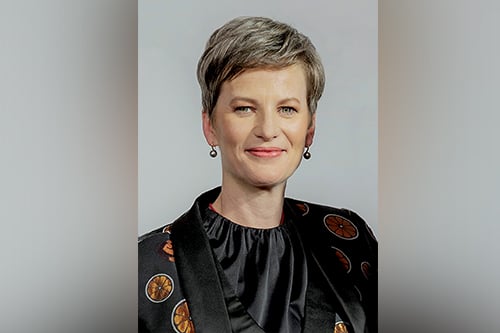

For Prue Willsford (pictured), CEO of the Australian and New Zealand Institute of Insurance and Finance (ANZIIF), one of the biggest strengths of the insurance industry’s workforce is its sheer diversity.
“I’ve found that very few people actively choose to go into a career in insurance,” she told Insurance Business. “If you look at something like life insurance, they’ve increasingly focused on bringing in people with medical and allied health backgrounds, and it’s really helped to make a difference in understanding customers better.”
As the former Deputy Chancellor of Victoria University, Willsford is adamant that almost any field of study can provide an individual with the skills necessary to prosper in insurance. Take an Arts degree, for example.
“I’m a strong believer in Arts degrees – I think they’re the most underrated degree programme across the Australian tertiary education landscape,” she noted. “Students are required to read an incredibly broad range of materials, synthesise their arguments, and quickly learn that there’s no right answer. These are skills that can absolutely come in handy when working in insurance.”
Listen: Prue Willsford of ANZIIF
Willsford’s emphasis on education can be seen in the work being done by ANZIIF. Having formed way back in 1884, the professional association for the insurance industry boasts nearly 18,000 members across the Asia-Pacific region and is “the main educator across the whole value chain of insurance”. Among the myriad of benefits ANZIIF offers is access to an online educational centre with approximately 2,500 distinct learning materials – a resource that has proven to be particularly useful during the COVID-19 pandemic.
“About five or six years ago, we made a major upgrade to our teaching in the form of ‘skills units’ – online short courses that can be used as educational building blocks or for working towards a particular skill or professional qualification,” Willsford said. “These are highly customisable and have been really well received by the industry. Their benefit has been made particularly clear during COVID-19, as some places where there’s been a more traditional view of the need for face-to-face learning have suddenly seen the use that online learning can have.”
Read next: ANZIIF responds to new code of practice
At ANZIIF, this commitment to continued professional development is paired with a desire to foster a sense of professionalism. Though the suite of regulatory changes facing the Australian insurance industry may lead some to believe this process is already underway, Willsford cautions that compliance with these regulations “doesn’t make a professional – it just means you’re meeting the basic requirements of law.”
“Our vision is to professionalise insurance and to help our members be good for the sake of being good. We’ve got a raft of regulations coming up over the next 18 months that, while large in scope, are certainly no replacement for professionalism,” Willsford said.
“We need to build trust in the insurance profession and demonstrate that we can deliver more than just basic compliance. Two thousand (2,000) years of research shows that, to be a professional, you need to be certified, committed to lifelong learning and to a code of ethics. There’s a real opportunity for the industry to build its relevance to customers by increasing its professionalism, and that’s what we’re focused on at ANZIIF.”
